Joint Symposium of the ICTM Study Groups on Applied Ethnomusicology (6th) and on Music, Education and Social Inclusion (2nd), Beijing, July 7-10, 2018
In China, the promotion of music as Intangible Cultural Heritage has enjoyed tremendous development for more than a decade, and Beijing was therefore a most appropriate venue for this symposium of the International Council for Traditional Music (ICTM), which brought together two ICTM study groups, Applied Ethnomusicology (AE) and the newly established Music, Education and Social Inclusion (MESI). The event was hosted by the Central Conservatory of Music in Beijing (CCOM).
Organization
There was unanimity concerning the top quality of the work of the Local Arrangements Committee, under the outstanding leadership of Prof. Zhang Boyu (former chair of the musicology department, and current director of the Intangible Cultural Heritage Research and Conservation Centre, CCOM), with the support of dedicated assistants, students, and translators all fulfilling their task with great competence and enthusiasm. The organization, welcome and logistics at CCOM was one of the best I have experienced.

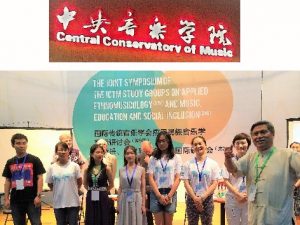
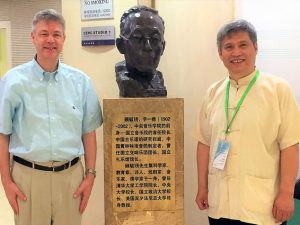
Presentations
I presented on “Questioning the Effectiveness of Musicking Events in Peacebuilding Activities: An Ethical Framework for Participative Evaluation.” Questions and comments filled the allotted time, and conversations are still going on online. Among numerous high-quality presentations, due to lack of space, I will only focus on a few here, which I believe are particularly relevant for the work of MOMRI.
Patrick Allen: “Inclusion and Excellence in Music Education: Countering Cultural and Curricular Hegemony in an English Comprehensive School.”
Patrick shared how he used his unique music teaching style at Ifield Community College to support the integration of migrants from the Chagos Islands in Crawley, near Gatwick airport in the UK. Patrick has received various awards during his long teaching career: his book Singing Matters won the Times Educational Supplement Schoolbook Award in 1999; in 2004 he won The Guardian Award for Teacher of the Year in a Secondary School; he received the National Union of Teachers’ award for “inspirational leadership of a music group” at the 2015 National Festival of Music for Youth.


Elliot Gann and Alexander Crooke: “Exploring the Implications of Excluding Hip Hop from Mainstream Music Education in Western Education”
Elliot and Alexander highlighted the humanistic and life-affirming dimension at the origin of Hip Hop culture, and invited participants to create some rhythms and tunes on the spot using a beat machine with touch pads. I found the mixture of philosophical depth/sophistication and simplicity/fun highly effective. When framed in this way, the potential application of Hip Hop in peacebuilding activities is compelling.
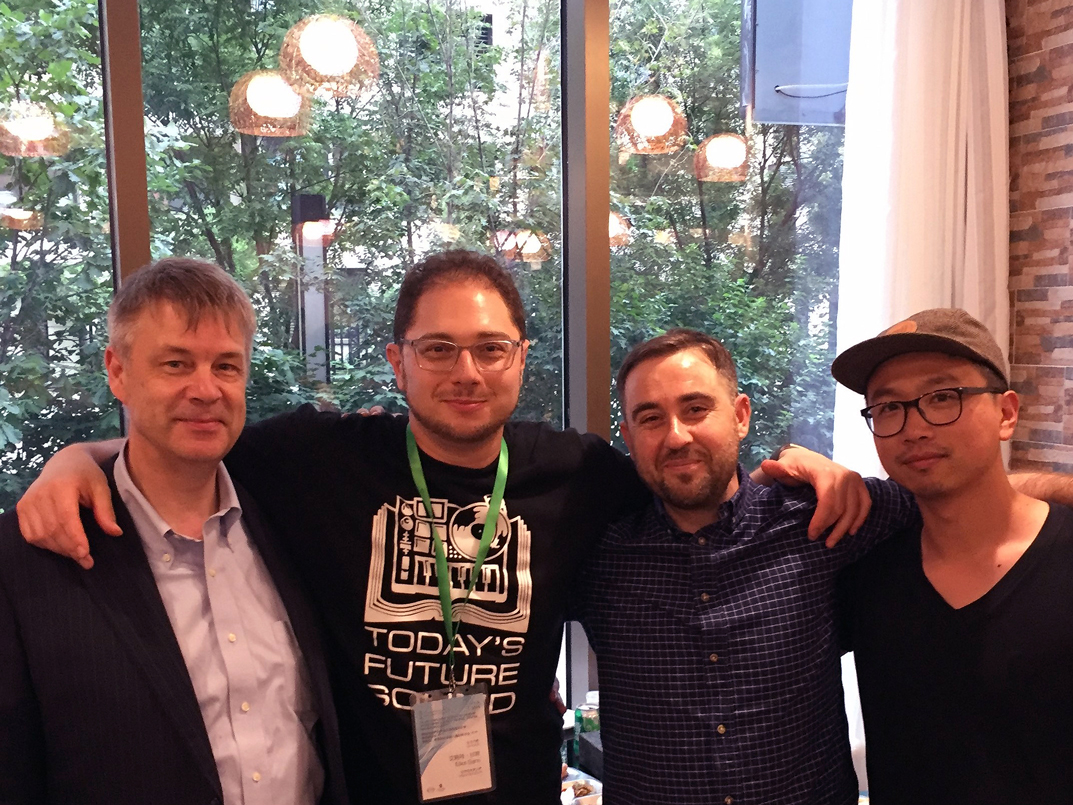
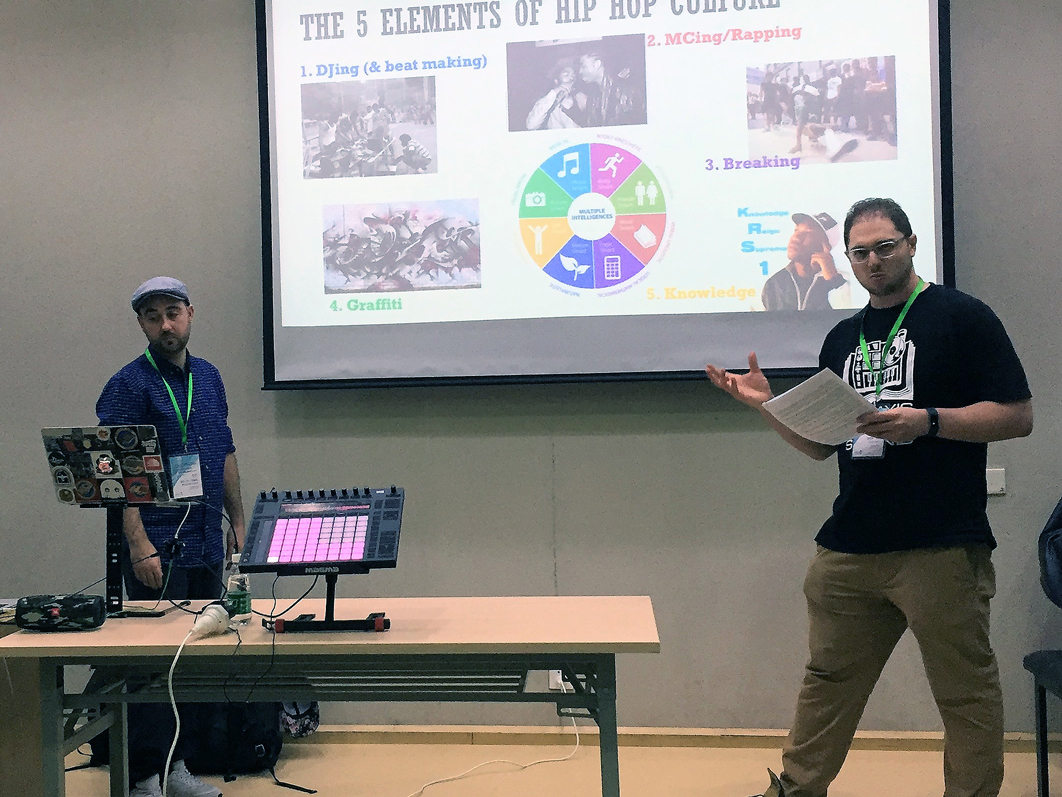
Multimedia Support and Wide Range of Topics
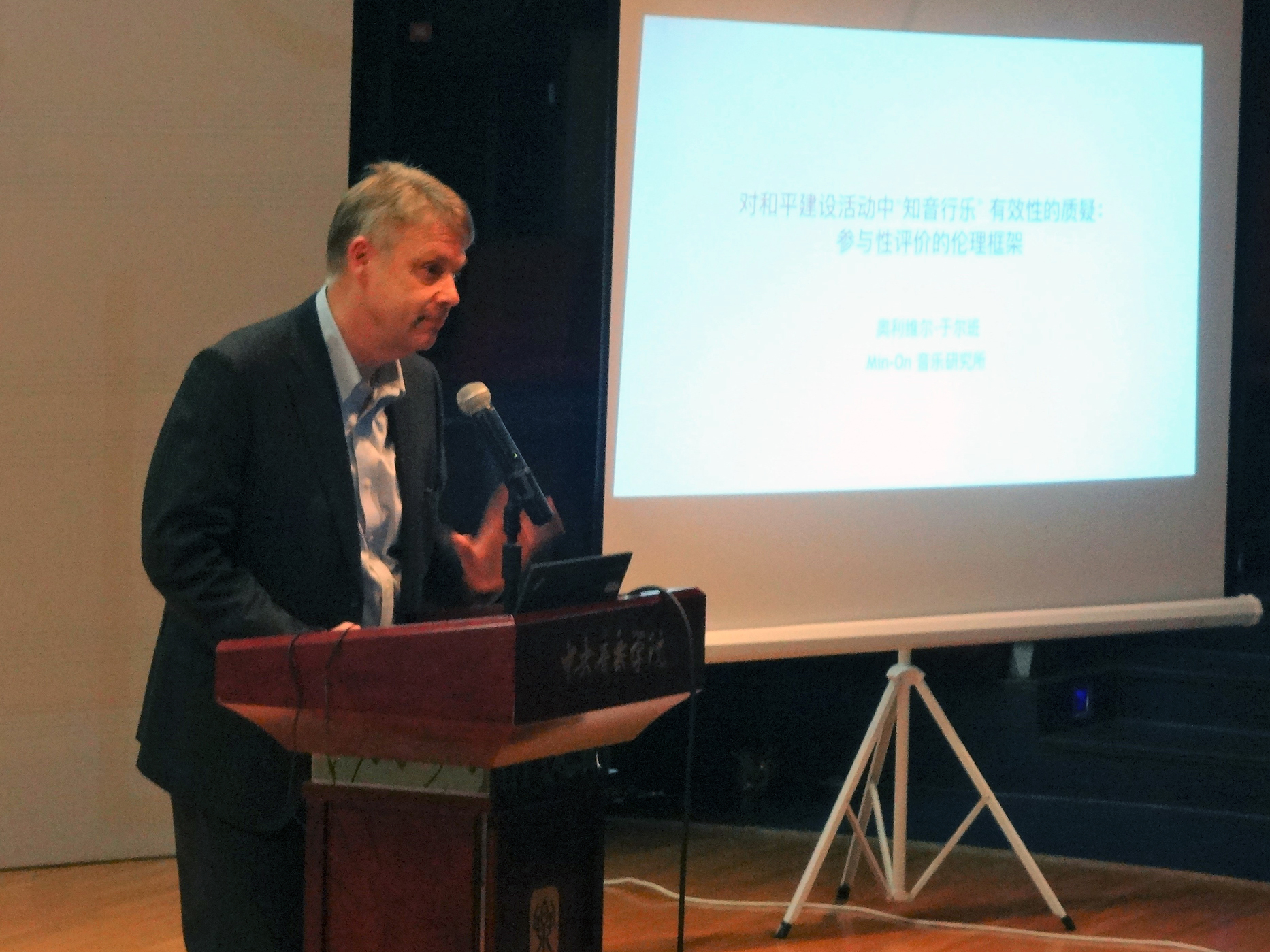
The tech support was excellent, and each presenter was flanked by two screens, one showing their presentation, and the other projecting a translation in Chinese.
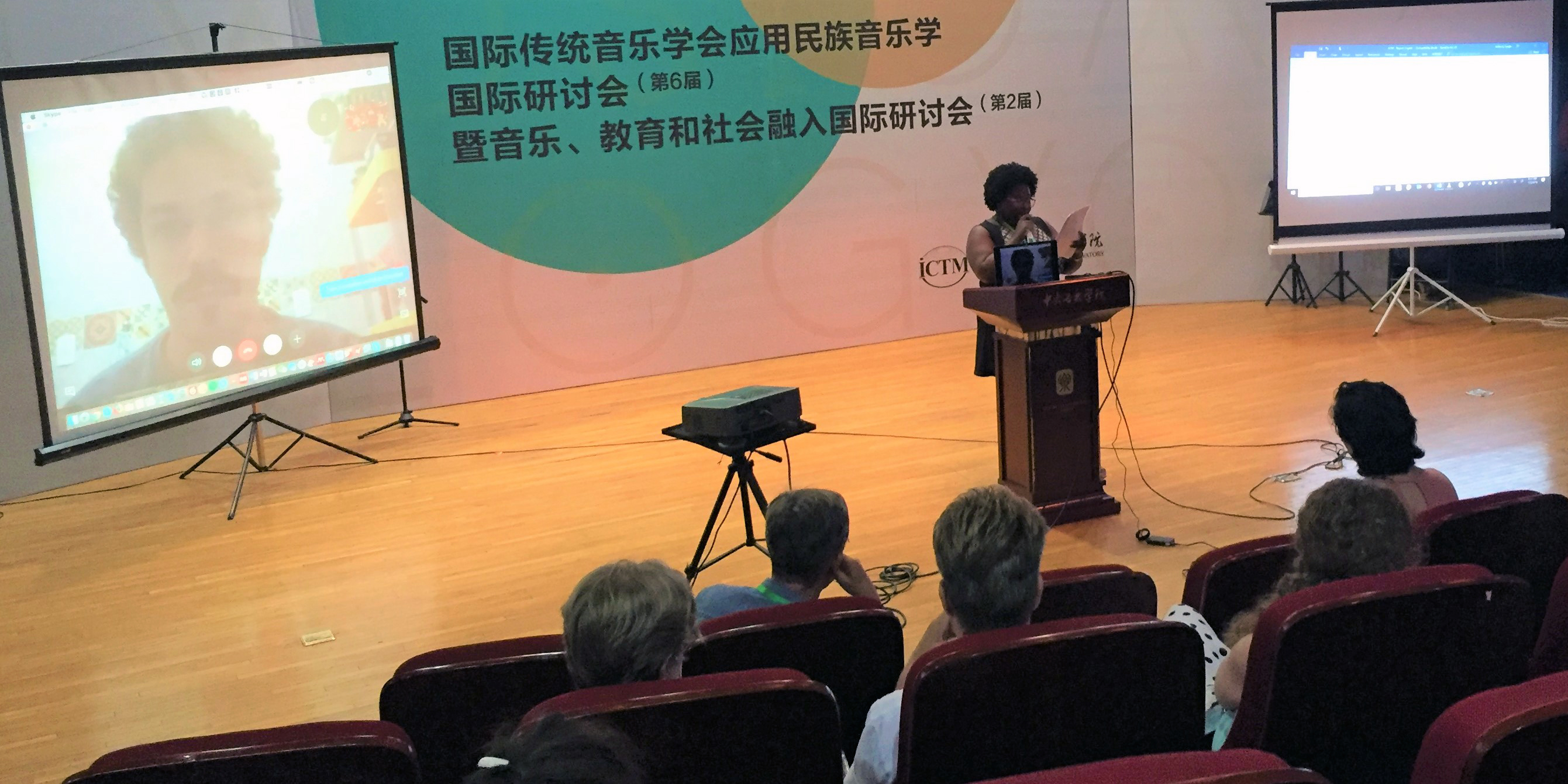
Live video presentations were also available, and here Jhenifer Raul was interacting with one of her co-authors who was in Brazil, during their presentation with the explicit title of “The Carioca Funk Poetry in the Sarau Divergente: Black Culture in the Fight against the Black People Genocide in Rio de Janeiro.”
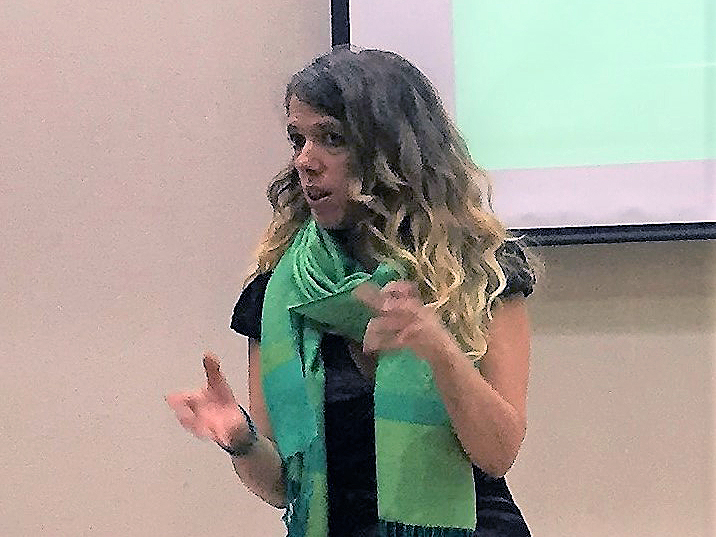 Sara Selleri (Chair of MESI) presented on “When Women’s Absence is the Norm: Internalized Systems-Level Gender Discrimination and Invisibilization in Society and Formal Music Education.” Based on Camara Phyllis Jones’s Levels of Racism, Sara demonstrated the usefulness of the following typology of racism: institutionalized (e.g. unequal access to education or work), personally mediated (e.g. experiencing lack of respect from peers), and internalized (e.g. lack of belief in oneself resulting in hopelessness). The example of Clara Schumann (German musician and composer, spouse of Robert Schumann) losing confidence and abandoning her musical creativity under the attacks of a male-dominated society was particularly striking.
Sara Selleri (Chair of MESI) presented on “When Women’s Absence is the Norm: Internalized Systems-Level Gender Discrimination and Invisibilization in Society and Formal Music Education.” Based on Camara Phyllis Jones’s Levels of Racism, Sara demonstrated the usefulness of the following typology of racism: institutionalized (e.g. unequal access to education or work), personally mediated (e.g. experiencing lack of respect from peers), and internalized (e.g. lack of belief in oneself resulting in hopelessness). The example of Clara Schumann (German musician and composer, spouse of Robert Schumann) losing confidence and abandoning her musical creativity under the attacks of a male-dominated society was particularly striking.
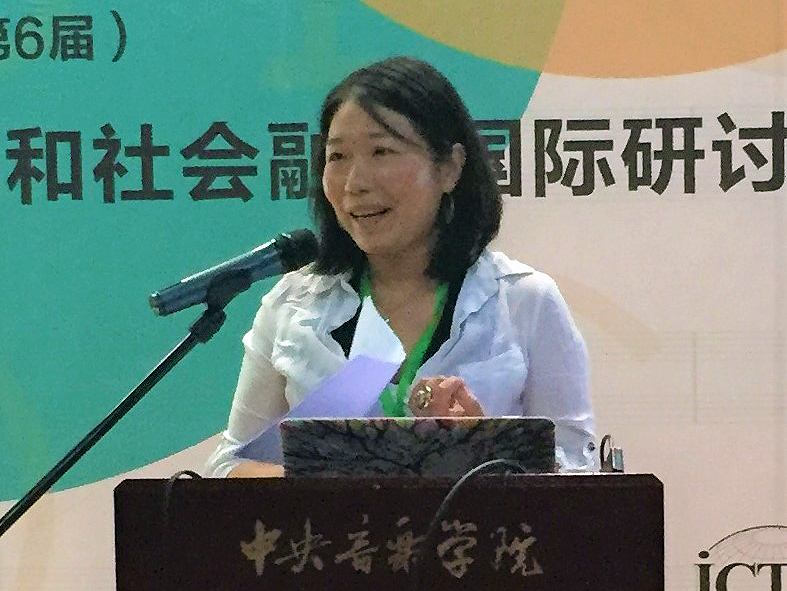
Among several presentations tackling the issue of forced migrations to and within Europe, Wei-Ya Lin shared her experiences musicking with migrants in Vienna, in the context of the research project “Music without Borders: Multilingualism in music (bi-and/or multi-musicality) and understanding the other and the unfamiliar.”
What is “Applied” Ethnomusicology?
One of the highlights of the symposium was a panel discussion featuring six ethnomusicologists, moderated by Prof. Zhang Boyu. ICTM defines applied ethnomusicology as “the approach guided by principles of social responsibility, which extends the usual academic goal of broadening and deepening knowledge and understanding toward solving concrete problems and toward working both inside and beyond typical academic contexts.” Panel participants, from right to left, made the following points:
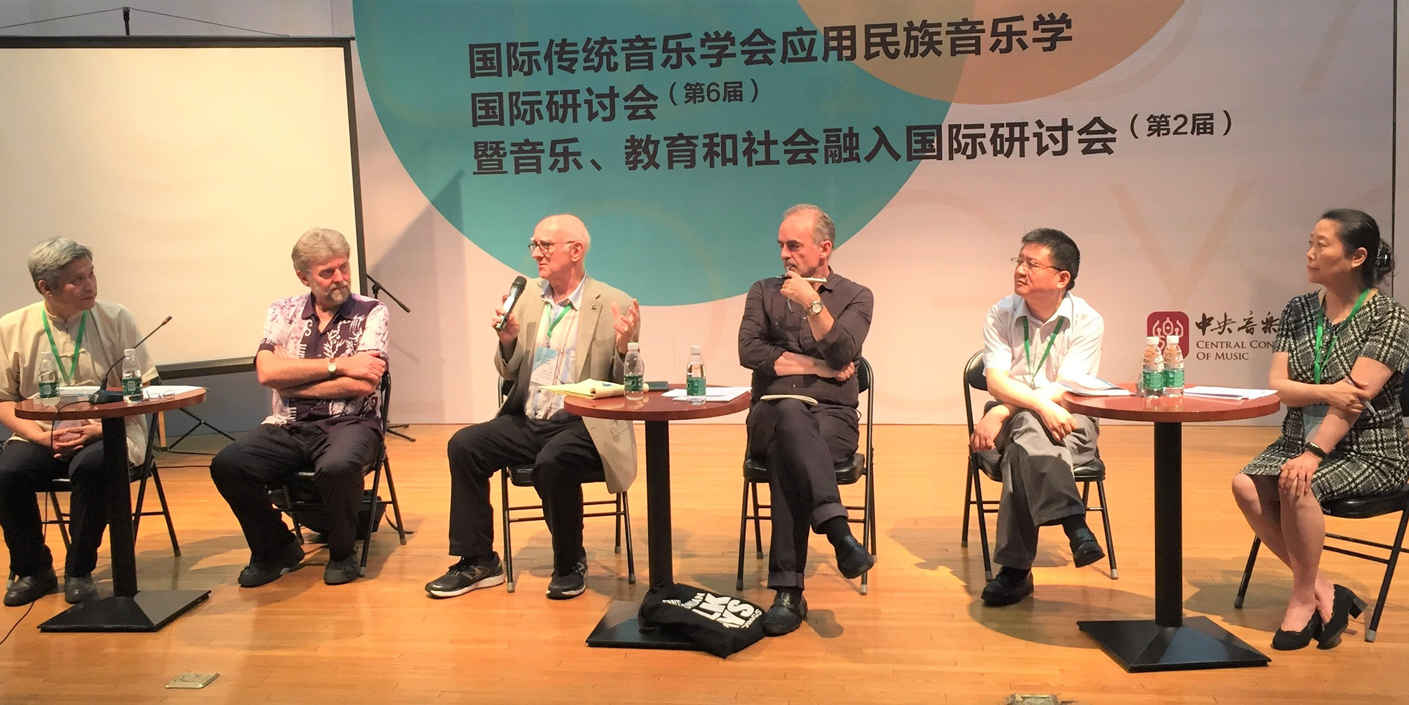
Xiao Mei, Professor at the Shanghai Conservatory of Music:
Take responsibility for the community and for yourself; just do it.
Yu Hui, Professor of Ethnomusicology and Dean, Yunnan University College of Arts and Design:
Make a visible change in people’s lives; have an impact on policy-making.
Huib Schippers, Chair of the AE Study Group/Smithsonian Institution
Give back to the people you do research with, so that it works for them, not just for us.
Anthony Seeger, UCLA/Smithsonian Institution
Transform society in a positive way, act outside of the classroom.
Svanibor Pettan, Vice-president of ICTM/University of Ljubljana:
Use ethnomusicological knowledge, understanding and skills to make a difference.
Zhang Boyu, former chair of the musicology department, and current director of the Intangible Cultural Heritage Research and Conservation Centre, CCOM:
Using created knowledge to do something good; focus on those working behind the scenes.
Even administrative meetings were lively and meaningful, as these bright faces testify, from right to left: Anthony Seeger, myself, Muriel Swijghuisen Reigersberg (guest speaker at the MOMRI 2017 conference), Svanibor Pettan (guest speaker at the upcoming MOMRI 2018 conference).
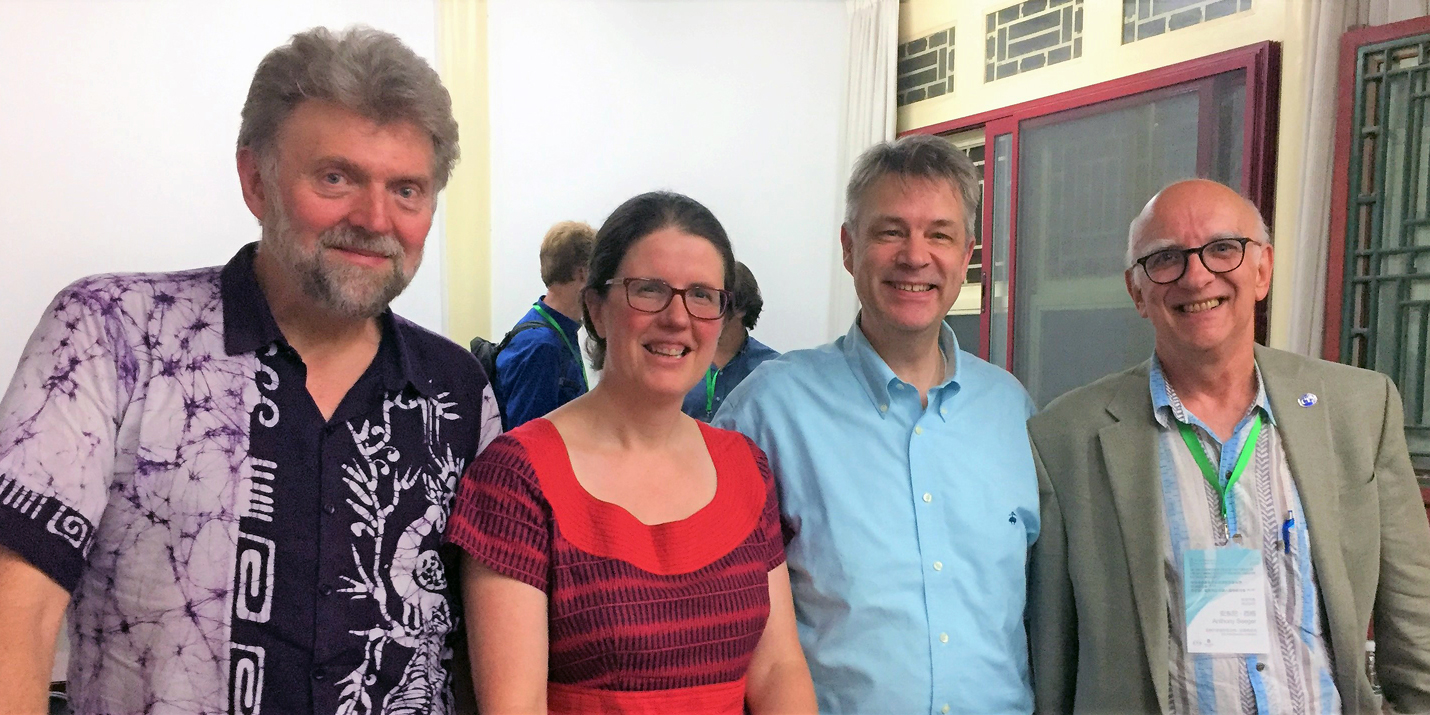
Performances
The symposium opened with a performance by a group of dancers and drummers led by Dr. Michael B. Vercelli, director of the World Music Performance Center, West Virginia University, USA. The performers are all students at CCOM preparing a visit to Ghana with Michael, where they will perform at the 2nd Symposium for the ICTM Study Group on African Musics.
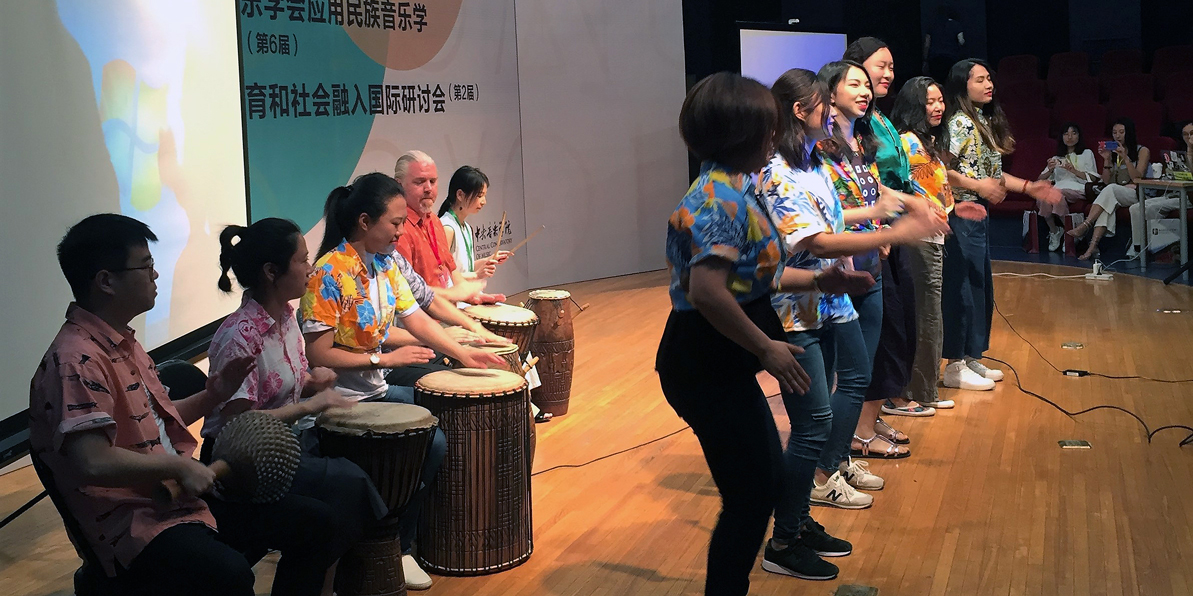
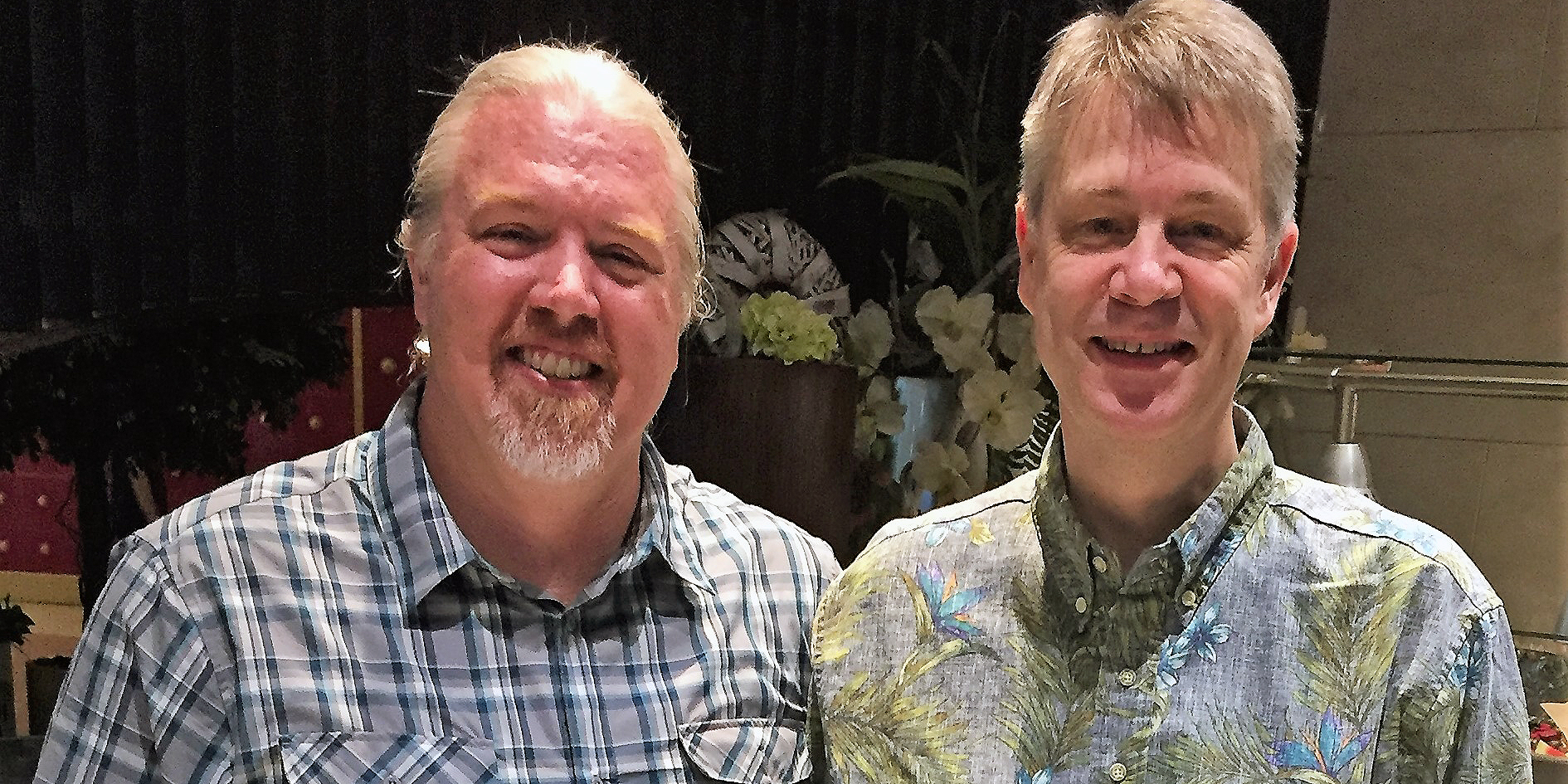
Among numerous opportunities to enjoy live music,
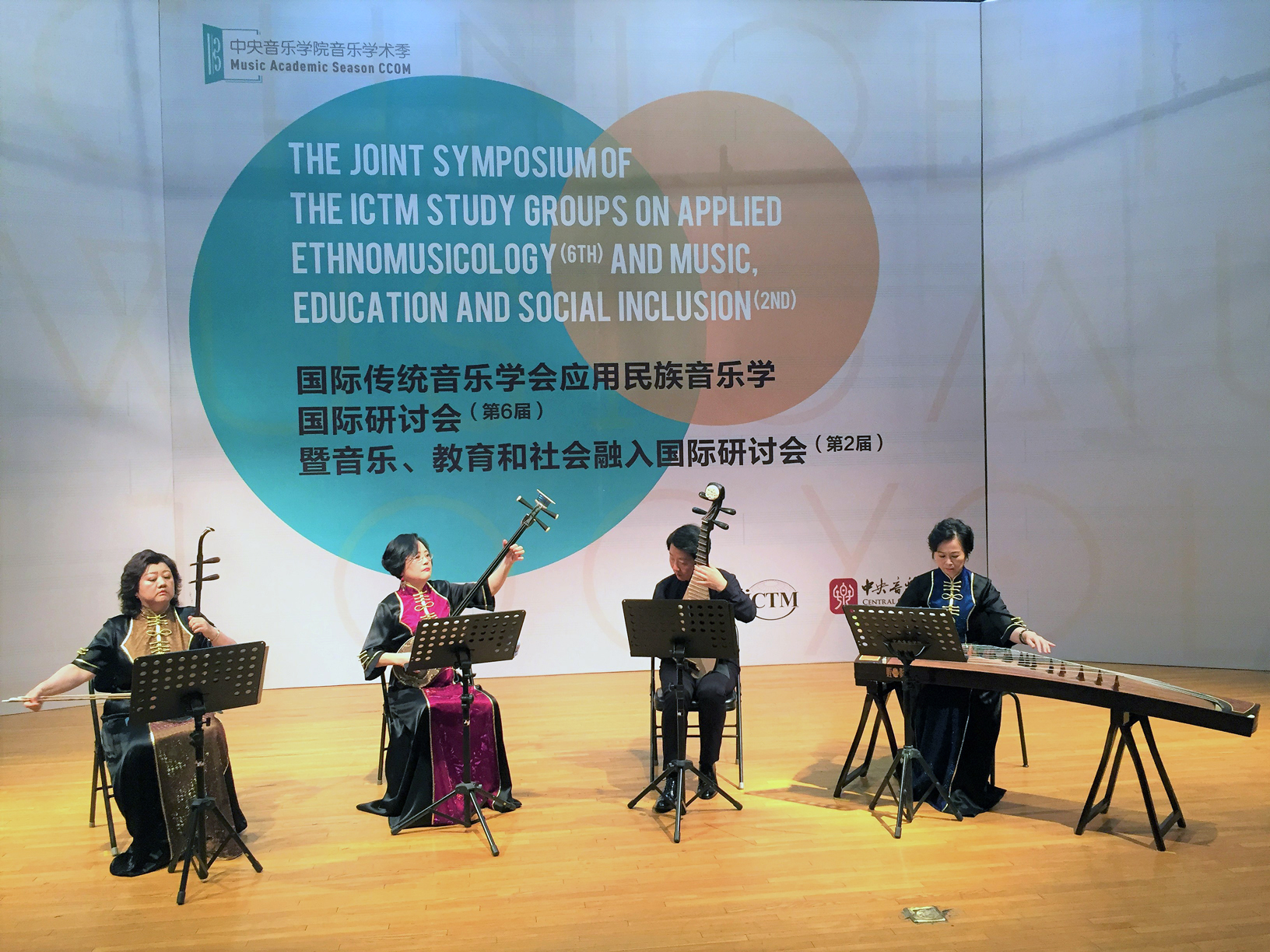
A quartet of traditional instrument, the Xiansuo Shisan Tao, performed excerpts from “Thirteen Suites for Strings” originally played at the Mansion of the Gong Monarch in the Qing Dynasty.
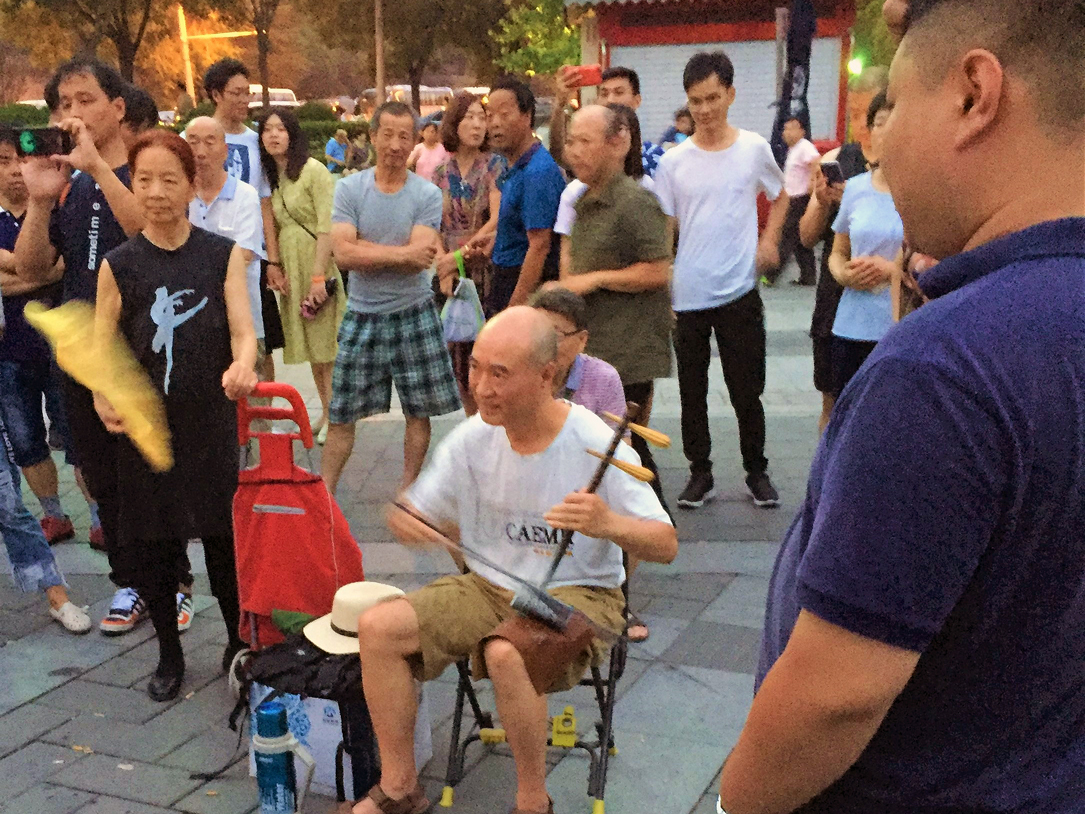 We were treated to a spontaneous concert in a park in the Shishahai Lake Area (right), and finally to “Echoes from the Silk Road: A Concert of New Orchestral Works by Chinese Composers,” performed by the CCOM Symphony Orchestra (below) at the superb CCOM Opera and Concert Hall.
We were treated to a spontaneous concert in a park in the Shishahai Lake Area (right), and finally to “Echoes from the Silk Road: A Concert of New Orchestral Works by Chinese Composers,” performed by the CCOM Symphony Orchestra (below) at the superb CCOM Opera and Concert Hall.
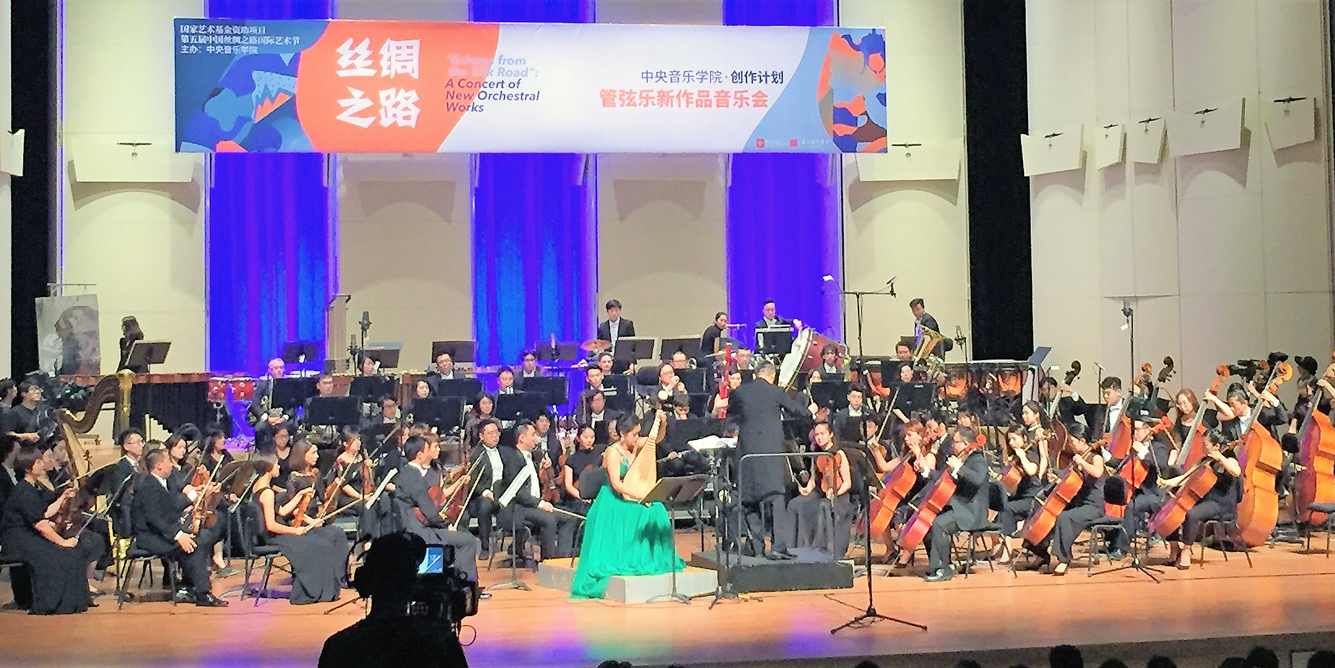 The MOMRI staff and researchers look forward to supporting the next events of ICTM, an organization that represents and promotes the fabulous diversity of our infinitely varied human musicalities.
The MOMRI staff and researchers look forward to supporting the next events of ICTM, an organization that represents and promotes the fabulous diversity of our infinitely varied human musicalities.




